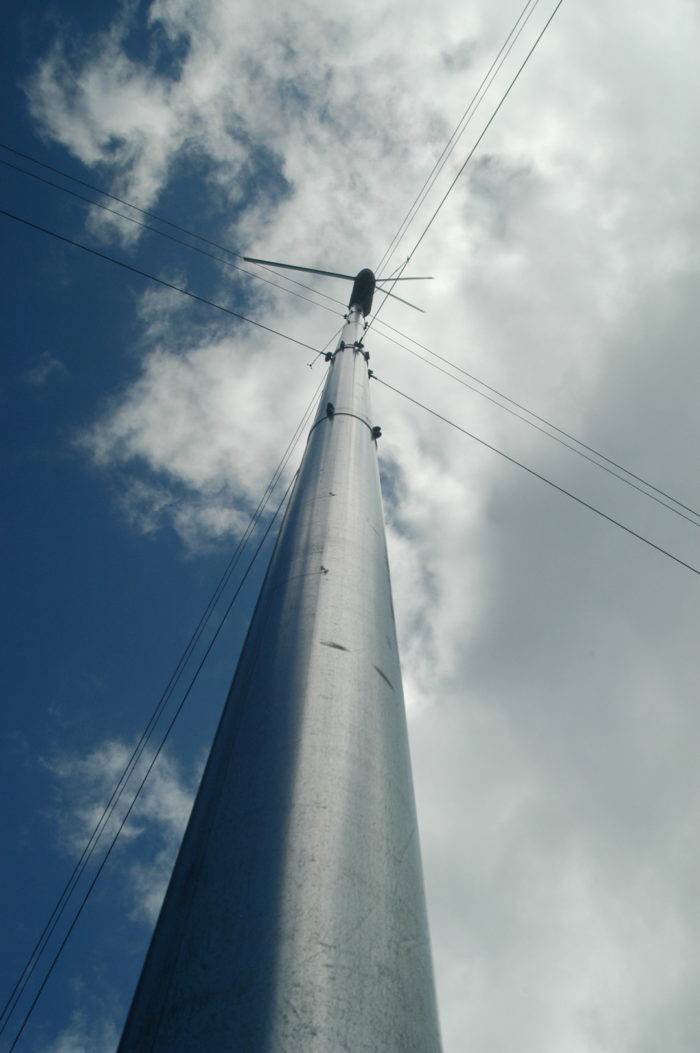
Image Credit: Scott Gibson
While many people focused on the tariffs of 30% imposed by the United States on imported photovoltaic cells and modules last month, most missed the larger renewable energy news story: After an 11-day trial, a federal jury in Wisconsin convicted the Chinese firm Sinovel of stealing wind technology, including trade secrets.
Beijing-based Sinovel is the largest wind turbine manufacturer in China and possibly the largest in the world, so when it is convicted of all charges in a criminal case involving the theft of trade secrets, including copyrighted software to produce “wind turbines, and to retrofit existing wind turbines with [stolen] technology, without having to pay” for the software, products, or services, that’s significant.
The dollar amounts are staggering. In March 2011, Sinovel owed American Superconductor more than $100 million for software, products, and services previously delivered, and had contracted to purchase more than an additional $700 million of software. But what is astounding is the conspiracy to use stolen proprietary information to produce billions of dollars of new wind turbine products, including those sold in the U.S.
[The Wall Street Journal reported in an article that Sinovel gained access to proprietary source code through a disgruntled employee of American Superconductor.]
The charges read like a spy novel
The grand jury charges in this case read like something out of a Cold War spy novel:
1. “(a) On or about February 26, 2011, ZHAO HAICHUN [a Chinese national residing in China] emailed KARABASEVIC [a Serbian national who worked for AMSC Wintec through June 30, 2011] a contract offering a salary of 11 million renminbi (approximately $1.7 million) for KARABASEVIC to work for SINOVEL from May 2011 through June 2017, essentially doubling KARABASEVIC’s annual pay.
2. “(b) On or about March 7, 2011, KARABASEVIC used the internet to access an AMSC computer in Middleton, Wisconsin, to secretly copy the development folder for the PM3000 [proprietary software that is the Power Module], which included the PM3000 source code.
3. “(k) On or about June 2, 2011, ZHAO HAICHUN, in a written Skype “chat,” reported to KARABASEVIC that he was at a wind turbine farm in Gansu, China, and had conducted a “voltage sag” test on twenty-one SINOVEL wind turbines to which the L VRT update had been copied. ZHAO HAICHUN noted that the test was successful and wrote to KARABASEVIC that it was “all because of you.”
4. “(m) On or about October 25, 2011, SINOVEL and ZHAO HAICHUN copied and caused to be copied the software compiled from the stolen and modified AMSC PM3000 source code into a wind turbine in Charlestown, Massachusetts.”
Sinovel faces fines of $4.8 billion
Sentencing is set for June 4. Federal officials previously announced that, taking into consideration the grave financial damage done to the U.S.-based American Superconductor and its successor, Sinovel faces fines of up to $4.8 billion.
Appreciating the import of this much-watched criminal case, U.S. Commerce Secretary Wilbur Ross said in a statement released on the day of the guilty verdict that Chinese disrespect for “intellectual property rights, by commercial espionage” poses a direct threat to the U.S.
This trade secret theft decision is a big deal in terms of the increasing attention being paid by the U.S. government to intellectual property theft by Chinese interests. The U.S. is responding to the aggressive mercantilist policies of Chinese companies. The U.S. reaction portends dramatic shifts in the business of renewable energy and sustainability — a business that has become intertwined with China — in the U.S. and across the globe.
Stuart Kaplow is an attorney specializing in environmental law. This post originally appeared at his website, Green Building Law Update.
Weekly Newsletter
Get building science and energy efficiency advice, plus special offers, in your inbox.















One Comment
it's very different there
I lived in Hong Kong a couple decades ago and would travel into the Mainland now and then. During transit, one could take a moment to buy bootleg DVDs of (mostly) US movies from private sellers operating out of the border patrol office. In Hong Kong, there was even a special market for buying bootleg software. It was the norm, and may still be.
Log in or create an account to post a comment.
Sign up Log in